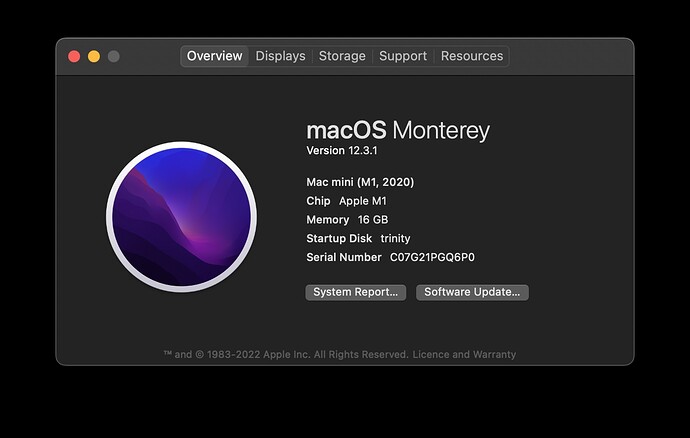Just in case there was some miraculous change, I ran both again: roon -l albums definitely works, roon -l tags definitely does not.
djn@trinity lastcollage-cli % pyenv versions
system
* 3.10.3 (set by /Users/djn/.pyenv/version)
djn@trinity lastcollage-cli % pyenv global system
djn@trinity lastcollage-cli % roon -l tags
Traceback (most recent call last):
File "/usr/local/Roon/api/list_tags.py", line 65, in <module>
tags = roonapi.list_media(output_id, ["Library", "Tags", searchterm])
File "/Library/Frameworks/Python.framework/Versions/3.10/lib/python3.10/site-packages/roonapi/roonapi.py", line 455, in list_media
total_count = self.browse_browse(opts)["list"]["count"]
TypeError: 'NoneType' object is not subscriptable
roon -l albums still works as expected.
djn@trinity lastcollage-cli % pyenv global system
djn@trinity lastcollage-cli % python3 /usr/local/Roon/api/list_tags.py -t __all__
Traceback (most recent call last):
File "/usr/local/Roon/api/list_tags.py", line 65, in <module>
tags = roonapi.list_media(output_id, ["Library", "Tags", searchterm])
File "/Library/Frameworks/Python.framework/Versions/3.10/lib/python3.10/site-packages/roonapi/roonapi.py", line 455, in list_media
total_count = self.browse_browse(opts)["list"]["count"]
TypeError: 'NoneType' object is not subscriptable
djn@trinity lastcollage-cli % pyenv global 3.10.3
djn@trinity lastcollage-cli % python3 /usr/local/Roon/api/list_tags.py -t __all__
Traceback (most recent call last):
File "/usr/local/Roon/api/list_tags.py", line 65, in <module>
tags = roonapi.list_media(output_id, ["Library", "Tags", searchterm])
File "/Users/djn/.pyenv/versions/3.10.3/lib/python3.10/site-packages/roonapi/roonapi.py", line 455, in list_media
total_count = self.browse_browse(opts)["list"]["count"]
TypeError: 'NoneType' object is not subscriptable
No difference for tags. No difference for albums.
Yep, definitely better than boring ones 
![]()
